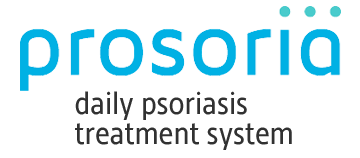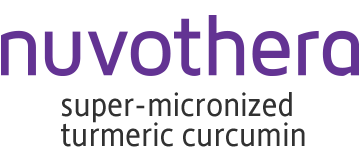
It’s time to finally find a solution for your psoriasis.
You’ve tried products before — prescription and non-prescription — but they just don’t seem to do what you’d hoped.
Lots of products promise a dramatic change in your condition, but very few actually produce the results.
No, we can’t clear up your psoriasis overnight. However, you can get the clear skin you’ve wanted for so long — it just takes a little time and effort.
Should You Use Prescription Psoriasis Treatments or Not?
Prescription psoriasis treatments deliver results. They’ve been proven effective through clinical studies and are recommended by doctors. But they also come with some side effects. If you have mild or moderate psoriasis, you may wonder if those side effects are worth the risk.
Many people grow concerned that the side effects are worse than psoriasis itself — especially if they have a mild case. Although the risks are small, there’s the potential for severe skin thinning from topical steroids, liver or kidney issues from oral medication, and life-threatening infections from biologics. So, if your psoriasis is mild or moderate, you may want to use prescriptions cautiously or consider to and use a safer over-the-counter product.
If your psoriasis is more severe, you likely want to use the prescription drug to obtain those proven results — but you also may need a non-prescription product to work alongside your prescription medicine to keep your psoriasis under control.
Prescription medications can be helpful — but you have to consider them with caution. Prosoria is a non-prescription option that works independently (or alongside your prescription medication) to clear up your skin — and it doesn’t come with a list of scary side effects.
Psoriasis Treatment Ingredients 101
What makes Prosoria a safe AND effective option? We’ve chosen our ingredients carefully. We’ve avoided ingredients that are potentially harmful and capitalized on the ones that are most helpful. We know what we put in Prosoria, and we want you to know too.
Not all ingredients are the same — and you can really waste time and money if you don’t know what’s in a product and how it works.
Maybe you’ve tried psoriasis treatments before, and you want something different to avoid an allergic reaction, a bad smell, or a harmful side effect. Or maybe you've found an ingredient you prefer and want more of it. Or maybe nothing has worked before and you’re ready for a product that delivers on its promise.
Whatever the reason, it’s important to know which ingredients to trust. You want proof that the ingredients in your medications are safe and effective (as evidenced by clinical studies) and you want them in doses that won’t irritate your skin.
Ingredient Must-Haves
How do you know which products meet these qualifications?
First, check to see if the active ingredients are FDA-approved. If the FDA considers the ingredients safe and effective, the product has passed the first test.
The next source of approval is from the National Psoriasis Foundation. They have a rigorous process of awarding a seal of recognition based on safety, efficacy, irritation potential, sensitization studies, and clinical studies. A board of dermatologists and psoriasis advocates review the data and, if the product meets their criteria, they award it a seal of recognition.
There are only two non-prescription products that have been approved by the FDA to treat psoriasis: coal tar and salicylic acid. Both products have been shown to improve or relieve the symptoms of psoriasis, such as scaling, flaking, redness, itching, and irritation.
So, if an over-the-counter product doesn’t contain one of these two ingredients, it may not be your best choice.
Coal Tar Cream for Psoriasis
Coal tar works, but it has a downside — it smells terrible. It’s either made from a petroleum distillate or pine bark… and it smells worse than diesel fuel. Because of the strong scent, people don’t like to use it for long — which means they need a new option for psoriasis treatment.
Salicylic Acid for Psoriasis
Salicylic acid tends to be the better choice. It’s anti-inflammatory and lipid soluble (meaning that it goes into the skin easily and treats the inflammation). Plus, it doesn't have the bad smell of coal tar.
Salicylic acid also helps exfoliate the dead skin cells away and allows new skin to replace it. So not only does it alleviate psoriasis, it also helps to create new healthy skin in its place.
Ingredients to Avoid
There’s a long list of ingredients you could potentially avoid in medications, but here are some of the main concerns:
Preservatives
Avoid preservatives that affect the endocrine and reproductive system and can be cancer-causing. While they’re not prohibited, many recommend specifically avoiding parabens in products you use daily.
Fragranced Medications
Fragrance should also be avoided. The chance of having a skin allergy is much higher with fragranced products. Fragrance-free medications help reduce the potential for any skin allergies, especially if you have sensitive skin.
Steroids
Try to avoid steroids as well. Studies show that both prescription and over-the-counter steroids cause the skin to thin… permanently. This leads to spider veins, easy bruising and stretch marks.
Also, be aware of any individual reactions you’ve had in the past with medications. People react differently to different products. If a certain ingredient causes you to have a headache or if the smell makes you gag, don’t use it. For example, coal tar makes many people nauseated if they’ve used it for a long time. Later, even the memory of it triggers a physical response.
You know your skin best and what products you can’t use, so keep looking for the right option for yourself.

The Right Choice for You
Of course, you want to choose products that aren't a waste of time and money. But more importantly, you want an effective treatment option that’s safe to use regularly.
Since psoriasis is a chronic condition, you’ll need to treat it daily without causing any long-term health issues from extended use. Prescription products are often great medicines and they may be the right choice for you.
But remember, you have a choice.
You have the option to choose an effective yet milder product that’s safe for your skin and with lasting results far beyond your current flare-up.

